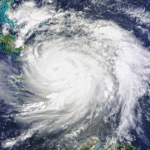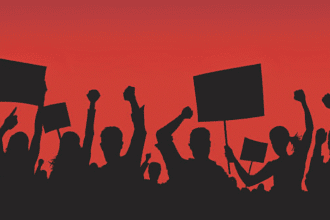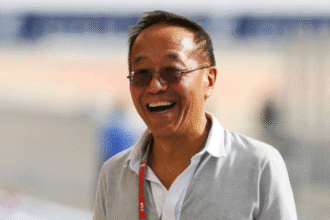In a dramatic turn of events, Igor Kirillov, the head of Russia’s Radiation, Chemical, and Biological Protection troops, has been killed in a brazen attack in Moscow. Once heralded as a patriot by Russian loyalists and derided as a “war criminal” by the West, Kirillov’s life came to a violent end, plunging the Kremlin into shock and sparking a wave of controversy and speculation.
Kirillov, infamous for his fiery briefings and bold accusations against the West, was killed alongside his aide when an explosive device planted in an electric scooter detonated near his residence on Ryazansky Prospekt in south-eastern Moscow. While Russian officials mourn his loss, Ukraine’s SBU security service has claimed responsibility, hailing the assassination as a targeted operation to eliminate a “legitimate war criminal.”
The Man Behind the Controversy
Kirillov was no stranger to the global spotlight. As the leader of Russia’s chemical weapons program since 2017, he oversaw a controversial division tasked with identifying hazards, protecting units from contamination, and deploying flame-incendiary means, including thermobaric warheads. His tenure was marred by accusations from Western nations of deploying “barbaric chemical weapons” in Ukraine, including riot control agents and toxic substances like chloropicrin.
The UK Foreign Office had labeled him a significant “mouthpiece for Kremlin disinformation,” a title Kirillov lived up to with outlandish claims that often bordered on the absurd. Among his most notorious assertions was the unfounded allegation that the United States had established biological weapons labs in Ukraine. This claim was dismissed globally but was amplified within Russia as a justification for the 2022 invasion of Ukraine.
A Calculated Assassination?
Ukraine’s SBU wasted no time in taking credit for the attack, describing it as part of their mission to hold “war criminals” accountable. Just a day before his death, Ukrainian officials announced that Kirillov had been charged in absentia for the “mass use” of prohibited chemical weapons on Ukrainian soil. They cited over 4,800 incidents of chemical munitions being deployed since Russia’s full-scale invasion began in February 2022.
The use of explosives in a seemingly inconspicuous electric scooter underscores the calculated precision of the operation. Such an audacious attack in the heart of Moscow signals a bold shift in Ukraine’s ability to strike at high-profile targets deep within enemy territory.
Outrage and Mourning in Russia
Kirillov’s violent demise has sent shockwaves through Russia’s military and political elite. A minute’s silence was observed in the State Duma, and tributes poured in from pro-Kremlin figures.
Deputy Speaker Konstantin Kosachev described Kirillov’s death as an “irreparable loss” to Russia, while retired general and MP Andrei Gurulyov vowed retaliation, claiming that such actions would not go unanswered. Gurulyov praised Kirillov as a patriot who courageously exposed the “criminal activities of the US and its allies.”
For the Kremlin loyalists, the attack was more than a tragic loss—it was a grim reminder of Ukraine’s expanding reach. Some even accused Western nations of orchestrating the strike, with Russian war correspondent Sasha Kots alleging that enemy agents had infiltrated Russia’s interior, conducting reconnaissance and executing attacks.
A Career of Infamy
Kirillov’s rise to prominence was marked by his leadership at the Timoshenko Radiation, Chemical, and Biological Protection Academy and later at the helm of the Russian army’s chemical protection troops. Yet, it was his incendiary rhetoric and dubious claims that cemented his notoriety.
Throughout the war, he repeatedly accused Ukraine of developing “dirty bombs” and violating international chemical weapons conventions with the help of Western nations. His dramatic presentations, often accompanied by unverified documents and wild allegations, were dismissed by independent experts as propaganda.
One such claim last year involved allegations that Ukraine aimed to seize the Kursk nuclear power plant to unleash radioactive contamination on Russian territory. Kirillov even accused Ukraine of creating chemical weapons labs in Avdiivka, asserting they were producing banned substances like hydrocyanic acid and psychochemical agents.
Despite the absurdity of his statements, Kirillov’s narratives played a pivotal role in Russia’s information warfare, justifying aggression and rallying support among domestic audiences.
A Legacy Shrouded in Controversy
For many in the West, Kirillov’s death marks the end of a career defined by disinformation and alleged war crimes. His role in deploying chemical agents and perpetuating propaganda placed him at the center of Russia’s most controversial military operations.
Yet, within Russia, he remains a polarizing figure. To his supporters, he was a patriot who fiercely defended his nation’s interests. To his detractors, he was a key architect of Russia’s aggressive policies and a symbol of the Kremlin’s disregard for international norms.
The Fallout and Future Implications
Kirillov’s assassination raises critical questions about security within Moscow and the broader implications of Ukraine’s ability to strike at such high-profile targets. As Russia mourns the loss of one of its key military figures, it also faces the grim reality of escalating tensions and vulnerabilities.
This targeted operation sends a clear message from Kyiv: no one, not even the most protected officials, is beyond reach. For Russia’s leadership, it is a stark reminder of the ongoing conflict’s unpredictable and far-reaching consequences.
As tributes and accusations fly, Kirillov’s death underscores the deeply entrenched hostilities between Russia and Ukraine. While the Kremlin grapples with this latest blow, the world watches closely, bracing for the next chapter in this intensifying conflict.
Rodrigo Duterte at the ICC: Will the Former Philippine President Face Justice?








